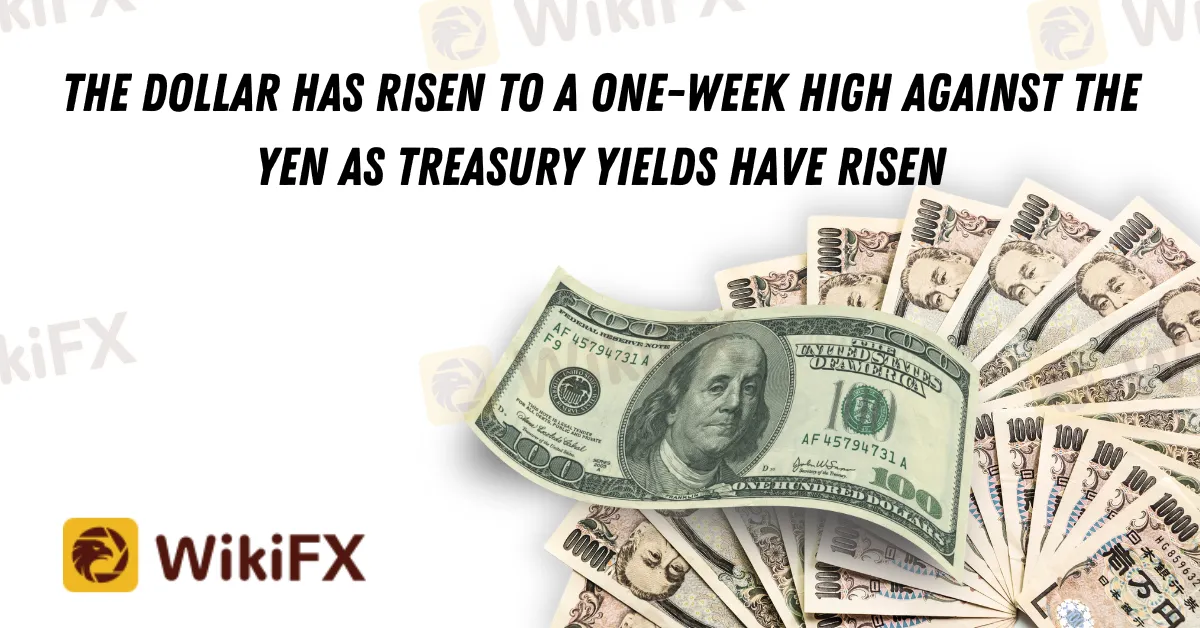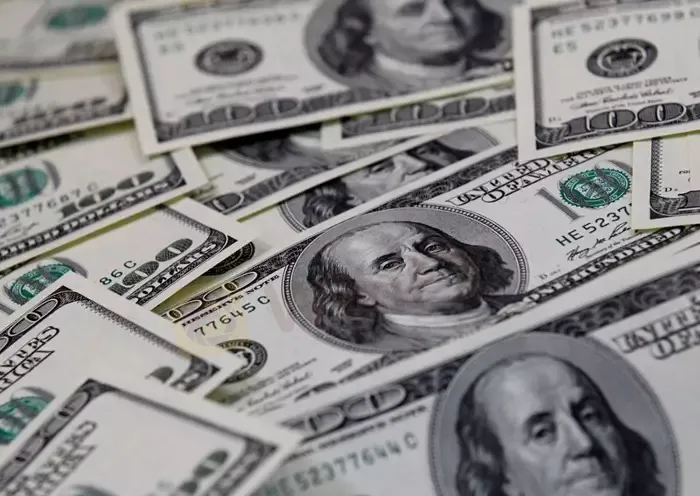简体中文
繁體中文
English
Pусский
日本語
ภาษาไทย
Tiếng Việt
Bahasa Indonesia
Español
हिन्दी
Filippiiniläinen
Français
Deutsch
Português
Türkçe
한국어
العربية
The Dollar Has Risen To A One-Week High Against The Yen As Treasury Yields Have Risen
Abstract:Kevin Buckland's TOKYO, April 16 (Reuters) - The dollar rose against its main counterparts on Wednesday, hitting a more than one-week high against the yen, boosted by higher Treasury rates as traders pondered the prospects for policy at the world's major central banks.

The dollar rose against its main counterparts on Wednesday, hitting a more than one-week high against the yen, boosted by higher Treasury rates as traders pondered the prospects for policy at the world's major central banks.
In Asian trade, the US dollar rose 0.13% to 133.685 yen, having previously hit 133.95 for the first time since December 20, when the Bank of Japan sent the pair plummeting down with an unexpected tightening of the 10-year Japanese government bond rate policy range.
The dollar fell below 130.58 yen for the first time since early August that day, as traders worried about the end of BOJ support.
According to a meeting summary issued on Wednesday, officials highlighted increased chances for stronger wage growth and persistent inflation in the nation next year.
The dollar index, which measures the currency against six rivals including the yen and euro, rose 0.07% to 104.28 on Thursday, extending its stabilization after falling to its lowest level since mid-June at 103.44 on Dec. 14, the day the Federal Reserve halted the rate rises to a half-point pace.
Fed officials, including Chair Jerome Powell, have since emphasized that policy tightening would be protracted, with a higher terminal rate, increasing concerns about a US downturn.
The 10-year Treasury yield, which is heavily connected with the dollar-yen pair, was at 3.843% in Tokyo, not far from the overnight high of 3.862%.
“The dollar is in a really fascinating scenario,” said Bart Wakabayashi, a State Street branch manager in Tokyo.
“If there is a recession in the United States, the Fed will have to decrease rates, and you will certainly want to sell the dollar,” he added. “At the same time, if there is a worldwide recession, people will flock to the dollar as a safe haven. So the dollar is in a bit of a pickle, and you have to be very cautious about what currency you purchase or sell against.”
The euro remained steady at $1.0640, following a two-week sideways trend, and was slightly below the six-month high of $1.0737 achieved on Dec. 15, when European Central Bank President Christine Lagarde reiterated that rate rises would need to continue.
Sterling fell 0.06% to $1.2024, remaining barely above its monthly low of $1.1993, set on December 22.
The Australian dollar remained unchanged at $0.6733, while the New Zealand dollar increased by 0.09% to $0.6279.

Dollar VS Yen
The foreign exchange market, where currencies are bought and sold, determines the value of a currency, such as the US dollar (USD) or the Japanese yen (JPY). A currency's value is governed by a number of variables, including the health of the issuing country's economy, political stability, and interest rate levels.
The USD and JPY are two of the world's main currencies and are often traded against each other in the foreign exchange market. These and other variables might cause the value of the USD compared to the JPY to vary. For example, if the US economy is regarded to be robust and steady, demand for the USD will grow, causing its value to rise compared to the JPY. On the other side, if the Japanese economy is regarded to be robust and stable, demand for the JPY will grow, causing its value to climb compared to the USD.
It is critical to remember that the value of one currency is always relative to the value of another. Other variables, such as government policy and global economic events, may also impact the value of a currency.
Follow us for more Forex Market news.
Download and install the WikiFX App on your mobile phones from the download link below to stay updated on the latest news, even on the go.
Download link: https://www.wikifx.com/en/download.html

Disclaimer:
The views in this article only represent the author's personal views, and do not constitute investment advice on this platform. This platform does not guarantee the accuracy, completeness and timeliness of the information in the article, and will not be liable for any loss caused by the use of or reliance on the information in the article.
Read more

Doo Financial Expands Regulatory Reach with Offshore Licenses in BVI and Cayman Islands
According to the report, Doo Group, a prominent Singapore-based online brokerage firm, has strengthened its global presence by securing new offshore licenses for its brokerage brand, Doo Financial. The company recently announced that entities under the Doo Financial umbrella have been granted licenses by two key offshore regulatory bodies: the British Virgin Islands Financial Services Commission (BVI FSC) and the Cayman Islands Monetary Authority (CIMA).

Why is there so much exposure against PrimeX Capital?
In recent months, PrimeX Capital, a Forex and CFD broker established in 2022, has become a subject of concern in the trading community. However, despite these enticing features, the broker's reputation has been severely tarnished by multiple complaints and a troubling lack of regulatory oversight.

The Hidden Checklist: Five Unconventional Steps to Vet Your Broker
Forex broker scams continue to evolve, employing new tactics to appear credible and mislead unsuspecting traders. Identifying these fraudulent schemes requires vigilance and strategies beyond the usual advice. Here are five effective methods to help traders assess the legitimacy of a forex broker and avoid potential pitfalls.

Doo Financial Obtains Licenses in BVI and Cayman Islands
Doo Financial, a subsidiary of Singapore-based Doo Group, has expanded its regulatory footprint by securing new offshore licenses from the British Virgin Islands Financial Services Commission (BVI FSC) and the Cayman Islands Monetary Authority (CIMA).
WikiFX Broker
Latest News
AIMS Broker Review
The Hidden Checklist: Five Unconventional Steps to Vet Your Broker
YAMARKETS' Jingle Bells Christmas Offer!
Doo Financial Expands Regulatory Reach with Offshore Licenses in BVI and Cayman Islands
Why is there so much exposure against PrimeX Capital?
Russia to Fully Ban Crypto Mining in 10 Regions Starting January 1, 2025
MTrading’s 2025 "Welcome Bonus" is Here
Doo Financial Obtains Licenses in BVI and Cayman Islands
CFI’s New Initiative Aims to Promote Transparency in Trading
Currency Calculator


